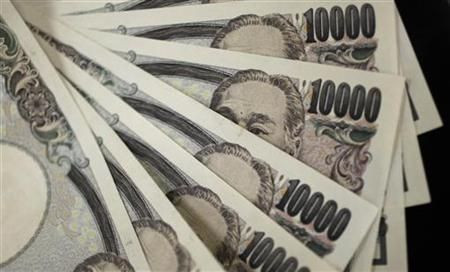Japan’s GDP Shrinks 0.9% In Q3

Japan's gross domestic product contracted in the third quarter compared to that in the previous quarter due to the soft global demand and the weakening domestic consumption in the world's third biggest economy.
According to the data released Monday by the Cabinet Office, Japan’s GDP, which measures the annualized change in the inflation-adjusted value of all goods and services produced by the economy, shrank to 0.9 percent in the quarter ending September 30, down from a 0.1 percent rise in the previous three months.
Subsequent to the end of the purchase incentive policy for environment friendly automobiles, the third quarter witnessed a sharp fall in private consumption. In addition, the data showed that there was a sharp decline in capital expenditure (CAPEX) in the period.
Analysts are of the view that the negative growth will continue into the October-December quarter. “Looking forward, the Japanese economy is surrounded by more negative factors than positive ones with private consumption likely keep adjusting after the waning impact of the policy stimulus, capex likely remaining sluggish due to weak demand both home and abroad, and the level-off in public demand due to declining execution of the counter-disaster stimulus packages, and, last but not least, exports likely staying weak due to the global economic slowdown,” Credit Agricole said in a note.
This report of the economic growth comes after last month the Bank of Japan announced more monetary easing policies with the asset purchase program (APP) by about 11 trillion yen ($138-billion). This brings the total size of the APP to about 91 trillion yen, of which 25 trillion yen is in loans, and the remaining 66 trillion yen is for asset purchases. The policy board agreed a further 5-trillion yen each of Japanese government bonds and treasury bill purchases and announced 0.91 trillion yen of purchases of risk assets.
Meanwhile, the market participants feel that Japan’s economy will need further support, especially with the country’s core consumer prices continuing to fall in September, indicating that deflation persists to impair the economic growth prospects. The data released by Japan’s Statistics Bureau show that the consumer prices declined to 0.1 percent in September from the earlier year, down from 0.3 percent fall in August.
A main reason for the existence of deflation in Japan is due to the shortage of demand relative to the supply capacity of the economy. How the government addresses this will indicate if it can achieve the target of 3 percent nominal GDP growth per annum through 2020 with inflation of 1 percent, which means the economy should achieve a 2 percent annual real growth.
© Copyright IBTimes 2024. All rights reserved.




















